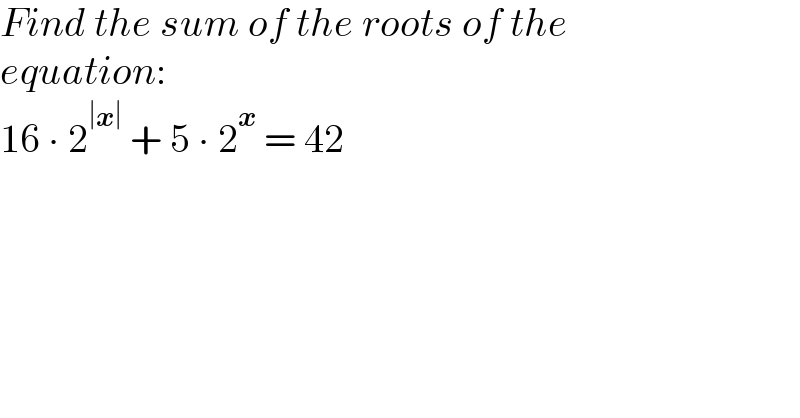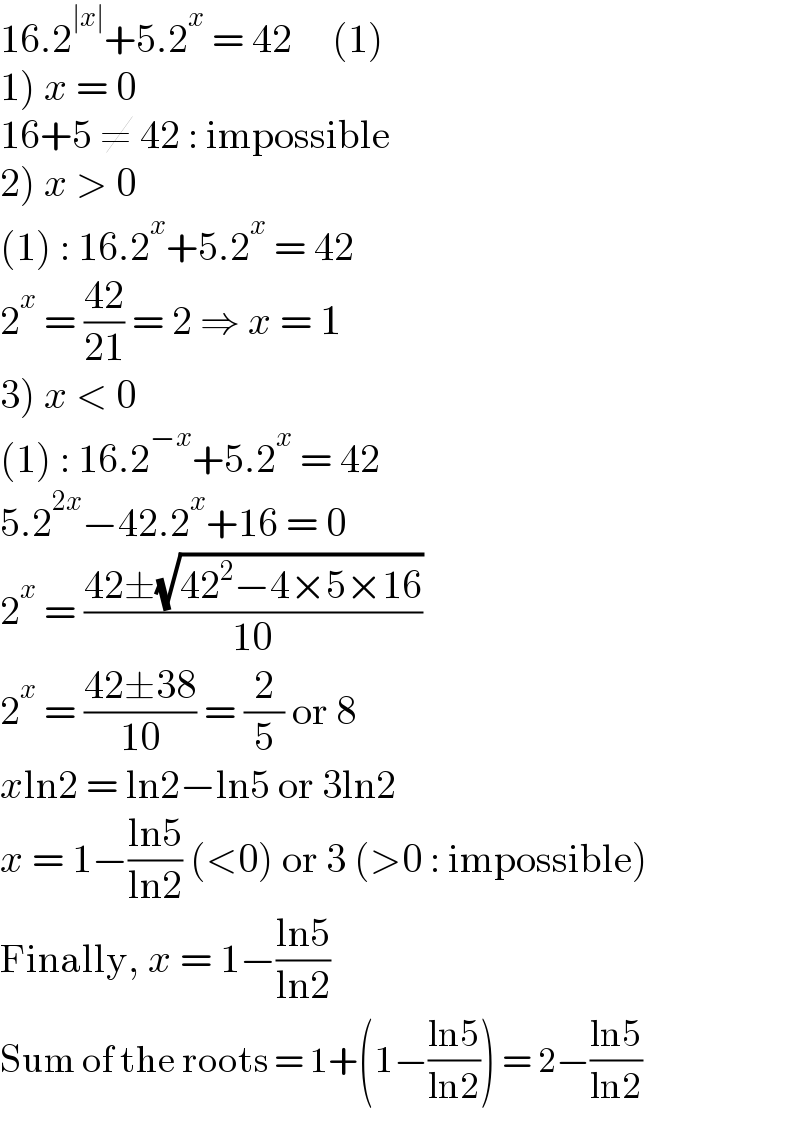
Question and Answers Forum
Question Number 146508 by mathdanisur last updated on 13/Jul/21

Answered by Olaf_Thorendsen last updated on 13/Jul/21

Commented by mathdanisur last updated on 13/Jul/21

| ||
Question and Answers Forum | ||
Question Number 146508 by mathdanisur last updated on 13/Jul/21 | ||
 | ||
Answered by Olaf_Thorendsen last updated on 13/Jul/21 | ||
 | ||
| ||
Commented by mathdanisur last updated on 13/Jul/21 | ||
 | ||